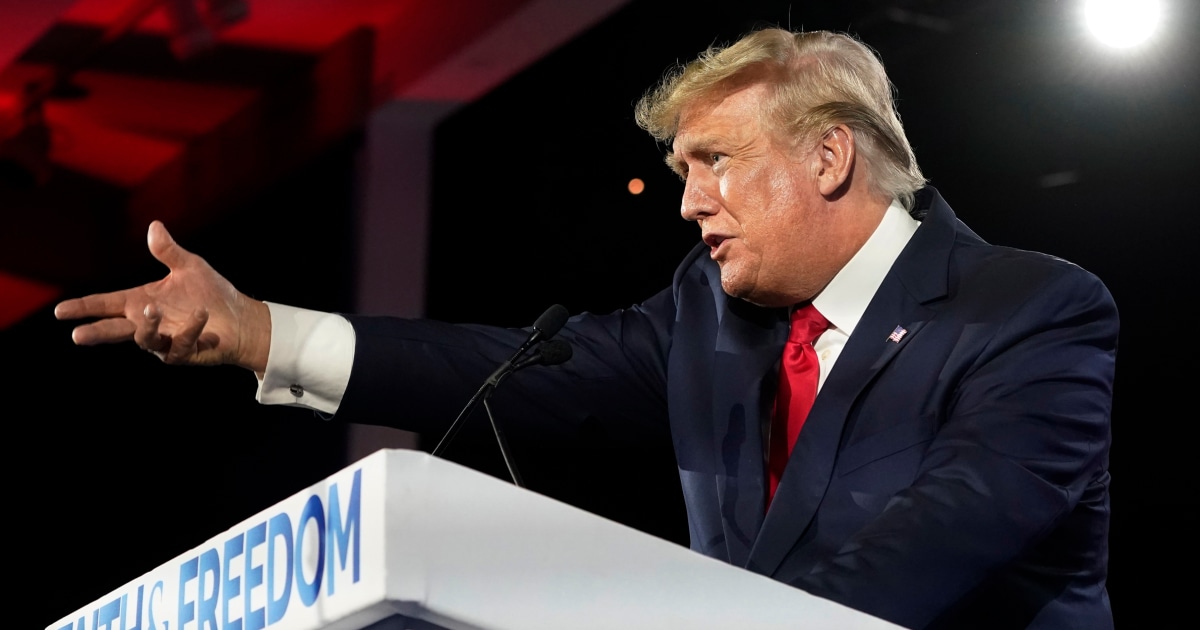
A federal appeals court on Friday gave both Donald Trump and House Democrats some of what each wanted in the continuing legal battle over access to his financial records. The court said the committee has authority to get some of the records but limited the scope of what it can seek.
The ruling was the latest development in the ongoing effort by the House Oversight Committee to enforce a subpoena issued to Trump’s accounting firm, Mazars. It sought the documents in 2019 after former Trump lawyer Michael Cohen testified in a congressional hearing that Trump inflated his total assets in seeking loans but deflated his assets to reduce his real estate taxes.
The case wound up before the Supreme Court, which rejected Trump’s argument that a president’s records were beyond the reach of Congress. But it said the lower courts must be respectful of separation of powers issues in demanding documents from a president.
In Friday’s ruling, the U.S. Court of Appeals for the District of Columbia sought to apply that guidance to the committee’s more detailed explanation of what it wanted and why.
The appeals court rejected a claim by the House that because Trump is no longer president, the Supreme Court’s guidance no longer applies. “The subpoena sought a sitting president’s information. President Trump then brought this challenge while still in office,” the court said.
“If there were no limits to Congress’s ability to drown a president in burdensome requests the minute he leaves office, Congress would perhaps use the threat of a post-presidency pile-on to try to influence the president’s conduct while in office.”
But the court rejected a claim by Trump’s lawyers that the committee’s revised justification for the documents should be ignored since it was drawn up after the lawsuit was initially filed. Friday’s ruling, however, limited the range of documents the committee can seek under what the court called the committee’s “dragnet reach.”
The court said the committee, in considering whether Trump violated the Constitution’s ban on outside emoluments, could consider only records of payments made to him or his entities by foreign and domestic government actors while he was in office.
It also limited the timeframe for documents related to the Trump International Hotel, which Trump’s company leased from the federal government, and related to his financial disclosure filings.
Concurring in the ruling, Judge Judith Rogers said the court balanced the committee’s legitimate legislative need for information “against the separation of powers concerns surrounding a congressional subpoena first issued to a now-former president during his time in office and subsequently reissued upon his departure.”
She and Judge Sri Srinivasan wrote the unanimous ruling. Ketanji Brown Jackson, who was a member of the three-judge panel when the case was argued, has since become a Supreme Court justice.
Mr. Trump’s lawyers have not said whether they would once again appeal.
Source: | This article originally belongs to Nbcnews.com










